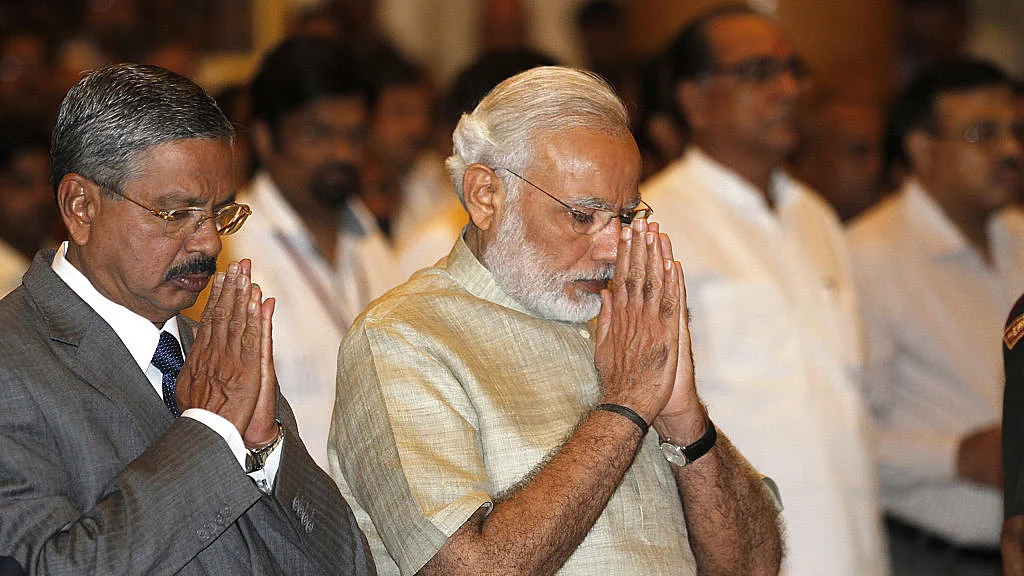Major setback, embarrassment to National Human Rights Commission
Packing the NHRC with retired judges, police officers, civil servants comes in for scathing criticism in report to United Nations; report recommends NHRC’s accreditation be deferred till November 2017

A damning report to the United Nations High Commissioner for Human Rights (OHCHR) recommends that accreditation to India’s National Human Rights Commission (NHRC) be deferred till November, 2017.
The recommendation has been made by the Global Alliance for National Human Rights Institutions (GA-NHRI), affiliated to the UN’s OHCHR, late in January. This would mean that till accreditation is renewed, the NHRC will be barred from representing India in the UN’s Human Rights Council as well as the UN General Assembly.
The NHRC’s selection and appointment process came in for sharp criticism in the report, which notes the lack of uniform and precise criteria for appointing members, and because no advertisement for vacancies in top posts is given out. It goes on to record that:
- Only 92 of the NHRC’s staff—a measly 20%—are women, the report notes, and that since 2004, there hasn’t been a single woman on the governing body.
- The legislative requirement of having an ex-CJI (Chief Justice of India) as Chairperson and choosing members of the senior judiciary severely restricts the potential pool of candidates who can be appointed, especially women.
- The report questions why top cops and serving or retired police personnel should be accommodated in the investigating wing of the commission. This question becomes crucial because the NHRC is tasked with investigating human rights violations by the government and its agencies, including the police.
Devika Prasad, Coordinator of the Police Reforms Programme of the Commonwealth Human Rights Initiative, says that given the paramount mandate of the NHRC—to protect citizens from rights violations by the State—having an investigative unit stacked with, and headed by a police officer, is incompatible with the very idea of natural justice. “For a start, the NHRC could do with having a unit which has policemen in it, but also comprises other competent personnel having diverse experiences and the requisite skill-sets”, she suggests.
A damning report to the United Nations High Commissioner for Human Rights recommends that accreditation to India’s National Human Rights Commission (NHRC) be deferred till November, 2017. This would mean that till accreditation is renewed, the NHRC will be barred from representing India in the UN’s Human Rights Council as well as the UN General Assembly
The report expresses serious reservations about a senior civil servant being the NHRC’s Secretary General (the present incumbent is Satyanarayan Mohanty, an IAS officer), and also asks why the Chairperson of the National Commission for Schedule Castes and Tribes—an elected MP—has voting powers in the commission.
While noting that the NHRC does need to work with the government in many cases, the SCA report categorically states that the commission needs to be completely independent and insulated from government and political influence.
“The SCA report has come as a severe indictment of successive governments and their policies which has ensured that the NHRC continues to suffer from severe and fundamental problems in so far as its composition and independence are concerned.”Henry Tiphagne
Report criticises case backlog and complaint mechanism at NHRC
The report has come down heavily on the mammoth backlog of cases—at last count, it was 40,000—that the Commission is staring at.
It states that the complaint redressal mechanism and the quasi-judicial functioning of the commission leave a good deal to be desired, especially because not all stakeholders have equal and unfettered access to the process.
“The SCA report has come as a severe indictment of successive governments and their policies which has ensured that the NHRC continues to suffer from severe and fundamental problems in so far as its composition and independence are concerned”, states Henry Tiphagne, General Secretary of All India Network of NGOs and Individuals working with National Human Rights Institutions (AiNNI).
He adds that in all the 24 years of its existence, the NHRC has not had a member of civil society in its topmost echelons, and it is time for the government to rise to the occasion and intervene in order to form a truly independent commission which recognises and practises diversity.
At the time of going to press, no one from the NHRC was willing to comment on the report and its observations and recommendations. Repeated queries by this correspondent went unanswered.
Mathew Jacob, Director-Programmes of People’s Watch, a civil society organization which closely scrutinises and monitors the functioning of the NHRC, told National Herald that with a petition regarding reforms in NHRC pending in the Supreme Court, the indictment will strengthen demands for an independent, autonomous and stronger NHRC in India.
Follow us on: Facebook, Twitter, Google News, Instagram
Join our official telegram channel (@nationalherald) and stay updated with the latest headlines
- Supreme Court
- NHRC
- Chief Justice of India
- United Nations
- CJI
- Human Rights Council
- National Human Rights Commission
- Commonwealth Human Rights Initiative
- HL Dattu
- United Nations High Commissioner for Human Rights
- OHCHR
- Global Alliance for National Human Rights Institutions
- GA-NHRI
- General Assembly
- Devika Prasad
- Police Reforms Programme
- Satyanarayan Mohanty
- National Commission for Schedule Castes and Tribes
- Henry Tiphagne
- AiNNI
- Mathew Jacob
- People’s Watch